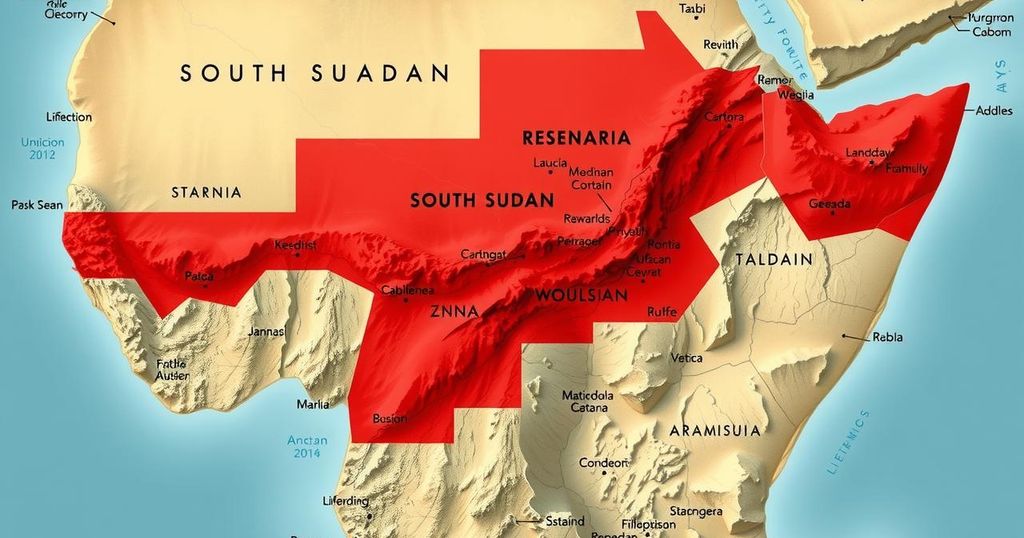South Sudan’s Fragile Peace Faces Critical Threat Amid Political Turmoil

The peace deal in South Sudan is jeopardized following the arrest of opposition leader Riek Machar, raising fears of renewed civil war. The country, marked by ethnic divisions and political instability, faces critical humanitarian challenges as various international entities call for de-escalation and address the worsening conditions. An urgent response is needed to prevent a collapse into deeper conflict.
A peace agreement in South Sudan, which has been crucial in curbing violence that previously claimed tens of thousands of lives, is now threatened. The nation, recognized as the youngest and one of the poorest globally, is witnessing tensions that may lead to another civil war. Following its independence from Sudan in 2011, South Sudan has faced challenges in maintaining peace, persistently divided by ethnic lines.
Since the outbreak of civil war in 2013 and again in 2016, South Sudan has struggled with internal conflicts, maintained by a tenuous ceasefire reached in 2018. The current leadership, a coalition government headed by President Salva Kiir alongside five vice presidents, including his rival Riek Machar, faces significant strains as political tensions escalate. Machar’s recent arrest raises serious concerns about the stability of the fragile peace agreement.
In a statement, the SPLM/A-IO, led by Machar, announced that his detention spells the likely collapse of the peace deal established with President Kiir. They described the current atmosphere as perilous for peace and security in South Sudan. The coalition government contends that Machar incited actions against the military, alongside Uganda’s military intervention, which they claim violates the established peace agreement.
The ethnic divisions between Kiir’s Dinka tribe and Machar’s Nuer group have fueled ongoing disputes, including recent violent clashes in the town of Nasir. The government claims Machar has been actively inciting rebellion, while the SPLM/A-IO denies these allegations and calls the situation exacerbated by military aggression against civilians.
International concerns are mounting amid these developments. The United Nations has cautioned that the situation is approaching a critical juncture that risks civil war. UN Secretary-General Antonio Guterres stated the peace agreement is collapsing, urging for de-escalation and reconciliation among armed factions. Concerned Western nations have jointly called for a ceasefire and the reversal of Machar’s arrest.
Furthermore, the African Union is ready to dispatch a delegation to aid in de-escalating tensions. Meetings between South Sudan’s leadership and regional heads of state signal efforts aimed at restoring stability, even as the grounds for negotiations appear tenuous.
The World Bank has depicted dire conditions in South Sudan, with increased violence and poor governance aggravating humanitarian crises. An alarming report indicated that over two-thirds of the population lives in extreme poverty. Amid these trials, South Sudan is hosting a significant number of refugees fleeing conflicts in neighboring countries, exacerbating its existing struggles.
UN officials have urged global attention towards South Sudan, emphasizing the urgency to prevent a humanitarian disaster from unfolding as the country teeters on the brink of collapse.
In summary, South Sudan is facing a critical situation as political tensions rise, threatening the precarious peace established since 2018. The arrest of opposition leader Riek Machar has intensified fears of a return to civil conflict, drawing concerns from global entities regarding the stability of the region. The situation remains fragile, with potential ramifications extending beyond South Sudan, necessitating urgent attentiveness from the international community to avert further humanitarian crises.
Original Source: www.cnn.com








